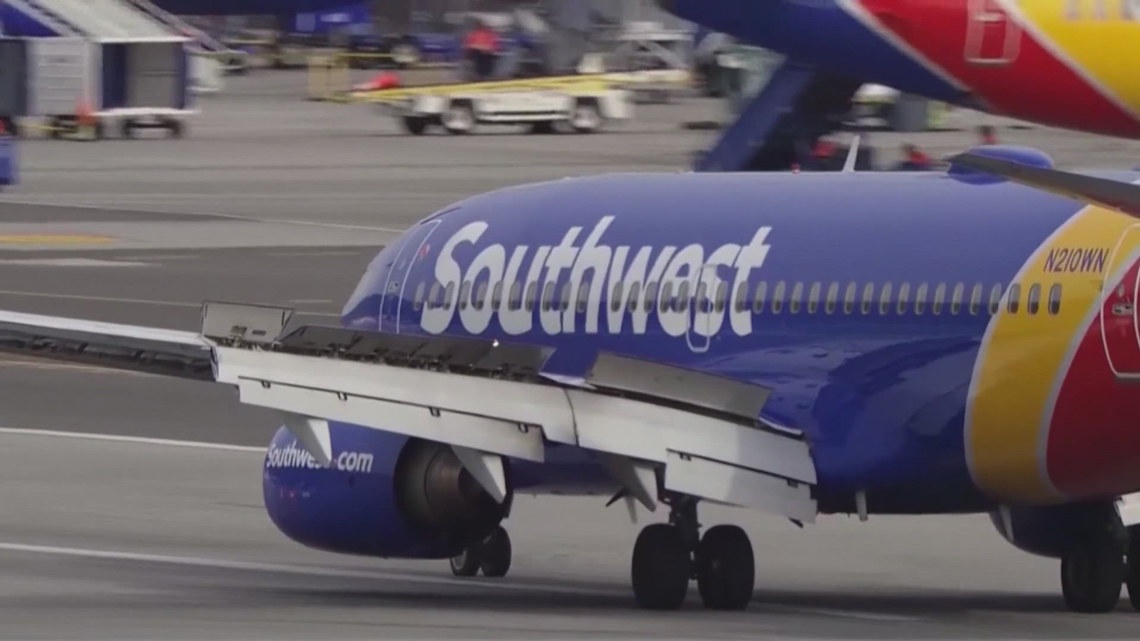
The judge’s ruling ends a fight over gate allocations that went to court in September 2024.
SAN ANTONIO — A District Court judge granted the City of San Antonio’s request to toss a lawsuit filed by Southwest Airlines, ending a nearly yearlong legal feud over gate assignments at San Antonio’s growing airport.
Southwest’s lawsuit was dismissed with prejudice—meaning it isn’t allowed to file the same claim again.
The complaint, originally filed last September, accused the city and Airport Director Jesus Saenz of discriminating against it through “fundamentally flawed” airport terminal allocations. But District Court Judge Xavier Rodriguez said Southwest was “fighting an uphill battle,” concluding its allegations that San Antonio unfairly prioritized airlines offering premium lounges – which Southwest doesn’t – didn’t hold weight in court.
“SWA’s factual allegations, even viewed in their best light, fail to state a plausible claim for relief,” the judge found. “And the only factual disputes in the summary judgement record… are immaterial.”
Saenz said in a statement that he was grateful for the outcome in court and confident that the city acted within its legal parameters.
“It remains our goal to ensure that all of our airline partners have the space and facilities to grow their service and be successful in connecting San Antonio to the world,” Saenz said.
Southwest argued that, through the gate assignments, the city tried to control how Southwest ran its business and that it rewarded airlines that had committed to building luxury lounges in the new terminal, unfairly penalizing Southwest in the process.
How we got here
Southwest COO Andrew Watterson flew in from Dallas in September 2024 to try and hash things out with city leaders amid the airline’s desire to move into Terminal C. Expected to be built by 2028, Terminal C will be more than twice as big as the two existing San Antonio International Airport (SAT) terminals combined.
Days after Watterson’s visit, however, Southwest escalated its impasse in a lawsuit which accused the city of reneging on a promise to give the airline up to 10 gates in Terminal C. That changed in May 2024, Southwest alleged, when the city told the airline it would remain in Terminal A.
“The tactic was an unfair ‘bait and switch’ that precluded Southwest from pursuing various opportunities in the lease negotiations,” it claimed in the now-dismissed lawsuit.
Southwest said the city was discriminating against it by hurting its competitive position, adding that staying in the smaller Terminal A would needlessly complicate the airline’s operations while burdening travelers. The company sought the approval of a temporary restraining order that would have prevented other airlines from entering into their lease agreements with the city while it prolonged its own holdout.
City officials at the time, however, remained confident that Southwest wouldn’t have left SAT regardless of whether it signed its new lease agreement or not.
San Antonio leaders filed a motion to dismiss the lawsuit in March, claiming Southwest created a “false narrative” and arguing the city couldn’t feasibly appease the airline given that others were receiving a limited number of gate assignments.
That sage continued in federal court this week, where Rodriguez dismissed the suit in a ruling issued Friday.
This is a developing story.
